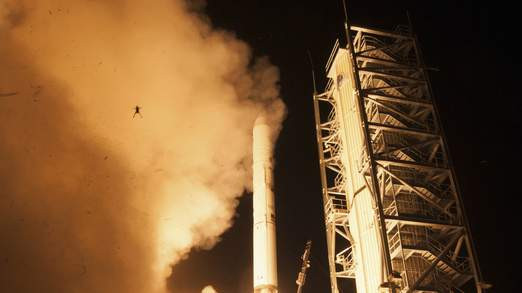NASA's Spacecraft LADEE Crashes into the Dark Side of Moon
This LADEE's not for turning: £166m lunar explorer obliterated on impact

NASA - or to give the organisation its full title, the National Aeronautics and Space Administration in the United States - has deliberately crashed its £166m lunar explorer into the dark side of the moon - at a speed of approximately 3,600mph. The reason? Due to a lack of fuel it would have been impossible to bring the spacecraft home to earth.
NASA's Lunar Atmosphere and Dust Environment Explorer (LADEE) was guided into a low orbit by technicians having completed a six-month orbit of the moon in which it analysed the moon's dusty atmosphere. The craft started orbiting the moon on 6 October and started gathering data on 10 November. It transmitted invaluable information about the moon back to NASA's Ames Research Centre in Moffett Field, California.
Travelling at three times the speed of a flying bullet and being the size of a vending machine, LADEE's impact would have been spectacular if anyone had been around to see it, explains project scientist Rick Elphic:
"There's nothing gentle about impact at these speeds – it's just a question of whether LADEE made a localized craterlet on a hillside or scattered debris across a flat area. It will be interesting to see what kind of feature LADEE has created."
There’s nothing gentle about impact at these speeds
However, the craft's impact would almost certainly have been unobserved. The dark (or far) side of the moon, made famous in the album by Pink Floyd, is permanently turned away from the Earth; to date, no human has ever stepped foot on its dark, cold surface.
When LADEE launched from Wallops Flight Facility in Virginia last September, a leaping frog seemed to "photo-bomb" the spectacular images, its silhouette clearly visible against a spectacular backdrop of fire.
NASA generated public interest right up to LADEE's final blaze of glory, when it asked the public to "Take the Plunge" and guess the time and date of impact. Those who guessed correctly will each receive a digital certificate.
© Copyright IBTimes 2025. All rights reserved.






















